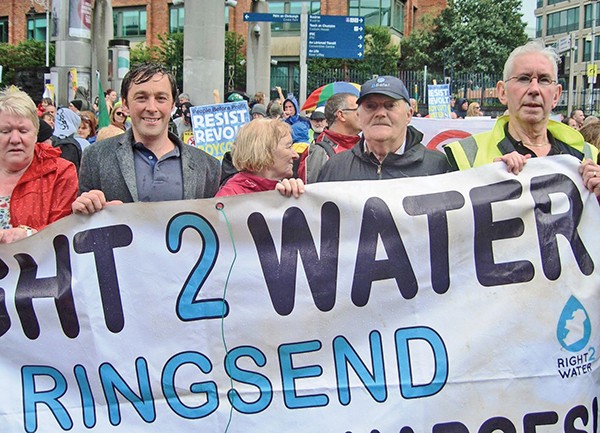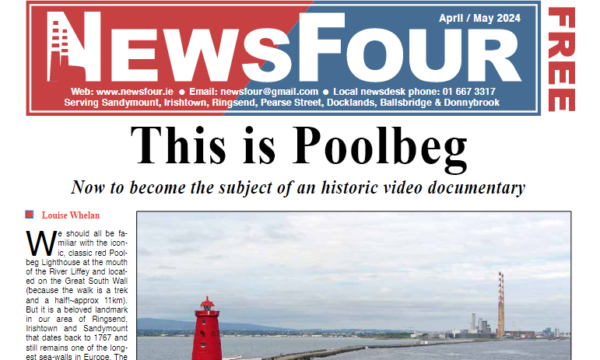
Above image supplied by Rory Hearne.
On August 31st, 80,000 people from across Ireland marched through Dublin to express their opposition not just to water charges, but to the potential privatisation of water, which people believe should remain a public resource and a human right.
On that day, I along with hundreds of other people from Ringsend and surrounding areas, marched into town to express our anger and hope for an alternative for Irish water.
Around the world, water is being privatised and turned into a commodity that private corporations are profiting from. Irish Water was set up in a way that our water could be privatised. Indeed, the head of Irish Water, John Tierney, showed his enthusiasm for turning public goods into private profit through his development of the Poolbeg Incinerator as a Public Private Partnership (PPP). This PPP arrangement for the massive 600,000 tonne toxic incinerator is likely to make massive profits for its US operator – Covanta.
The problem with water charges is that not only are they unjust and another austerity measure too far for people to cope with (these were main reasons cited for people protesting in research I undertook in Maynooth University), they also convert water into a profitable commodity that enables the public water system to be privatised. This allows massive corporations take over and run public services like water at a huge profit.
We have seen the situation in Detroit, where thousands of people have had their water cut off while 46% of the water bills go to financial companies. In Britain, private water companies made almost £3 billion in profits. Meanwhile in Paris after privatisation, prices rose by 260% before the water was made public again in 2008. This is the future of water in Ireland unless water is enshrined as a public good and human right.
The Right2Water campaign has proposed that there should be a referendum to insert this article into the constitution: Article 28 Section 4:2:1: “The Government shall be collectively responsible for the protection, management and maintenance of the public water system. The Government shall ensure in the public interest that this resource remains in public ownership and management.” This makes sense, as the current proposals for a plebiscite do not guarantee against future privatisation.
At the moment, Ireland is the only country in Europe with zero water poverty and that is because it has been (before Irish Water) a public system paid for through general taxation, not stealth charges.
The water charges and Irish Water are not about conservation. If they were, they would have started with fixing the major leaks which occur through public investment. This can still be done through a public investment project that would maximise conservation.
It is important to highlight that the United Nations Committee on Economic, Social and Cultural Rights, which Ireland is obliged to uphold, states, “The human right to water is indispensable for leading a life in human dignity. It is a prerequisite for the realisation of other human rights”.
Dr Rory Hearne is a temporary lecturer and researcher in Maynooth University and a local activist. His research on the water protests can be read at: The Irish water war, austerity and the ‘risen people’: An analysis of participant opinions, social and political impacts and transformative potential of the Irish anti water-charges movement is available at www.maynoothuniversity.ie/faculty-social-sciences/news/new-research-shows-water-protests-motivated-austerity-and-democracy-indicate-new-form-citizen-s
By Dr Rory Hearne



